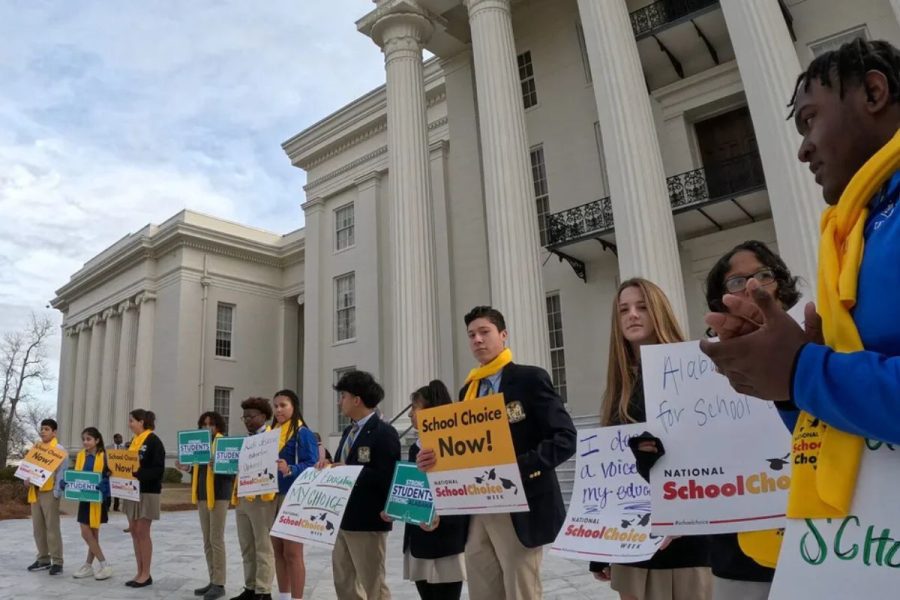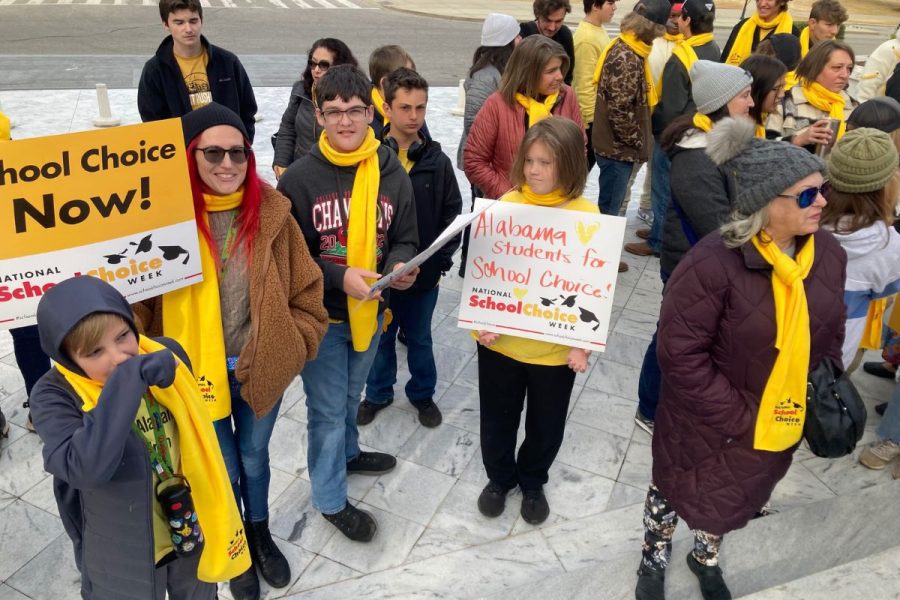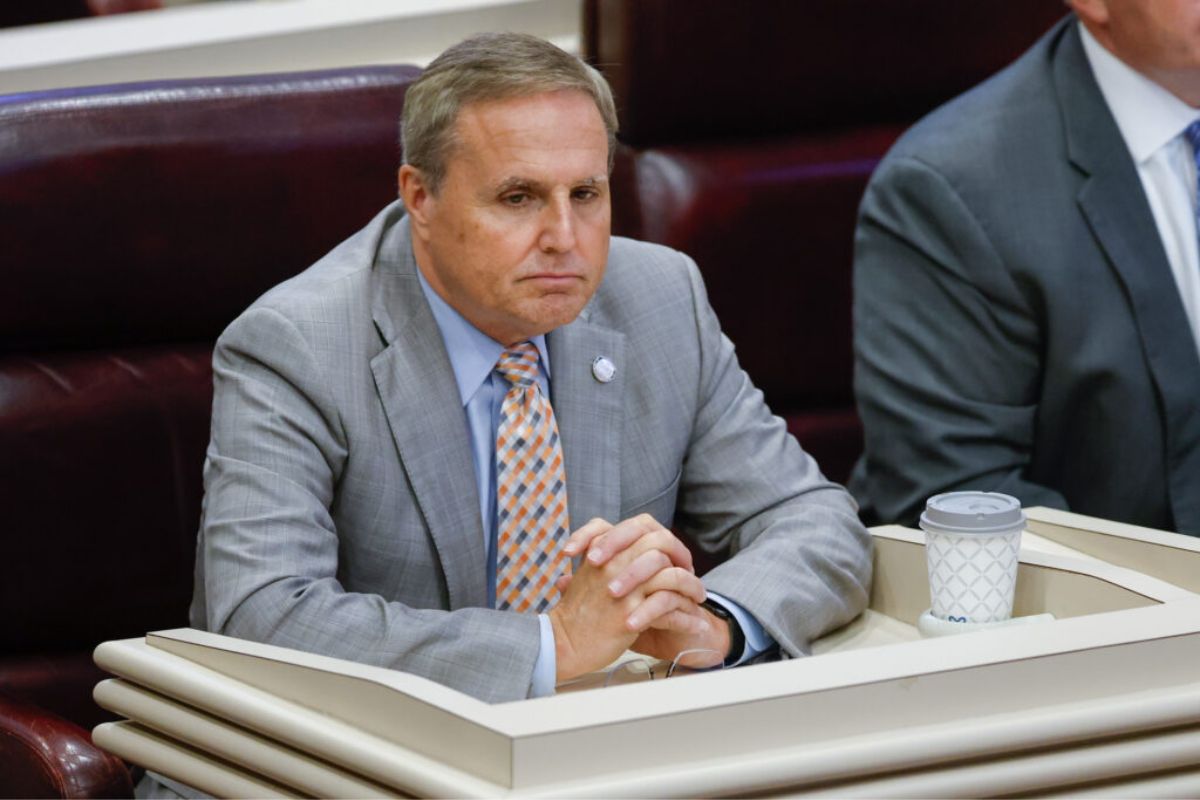Grill Danny Garrett on Education Savings: The Alabama House Committee’s current examination of the education savings accounts proposal, outlined in HB129, has sparked an intense debate among committee members.
As concerns were raised regarding the potential impacts on public school funding and the accessibility of such accounts, Chairman Garrett found himself fielding a flurry of questions.
The public input session further complicated matters, shedding light on the delicate balance between individual choice in education and the collective responsibility for equitable access to quality schooling.
Stay tuned as the committee navigates this intricate landscape of educational policy and funding.
Overview of HB129 Proposal
The overview of the HB129 proposal details a comprehensive plan to allocate $7,000 in state tax dollars per eligible student to families, enabling payment for their child’s education in a participating school or covering various qualifying expenses. This initiative is set to commence in the 2025-26 school year, initially targeting low-income families and students with disabilities before expanding eligibility to all families starting from the 2027-28 school year.
Chairman Garrett underscored the legislation’s primary objective of providing parents with previously unavailable opportunities to utilize a portion of their tax dollars for selecting schools that best suit their child’s unique needs, be it academic, social, emotional, environmental, mental health, or addressing concerns related to bullying. Additionally, families engaged in homeschooling would be eligible to receive $2,000 per child, with a cap at $4,000 annually, to support qualifying expenses.
The proposal aims to empower parents in making informed decisions regarding their children’s education while fostering a more personalized approach that caters to individual learning requirements and preferences.
Committee Members’ Concerns and Questions
Committee Members engaged in the examination of the Education Savings Accounts proposal expressed various concerns and raised pertinent questions during the session.
- Accountability for State Tax Dollars: Rep. Cynthia Almond and Rep. Alan Baker raised concerns about how accountability for state tax dollars used in the program would be ensured. They questioned the methods for analyzing success and proposed the implementation of a standardized system for testing and evaluation.
- Evaluation of Program Effectiveness: Rep. Baker suggested the involvement of the Alabama Commission on Evaluation Services to objectively assess the program’s effectiveness. The necessity of a consistent testing and evaluation mechanism to gauge outcomes was highlighted.
- Concerns About Unaccredited Schools: Rep. Baker voiced worries regarding the inclusion of unaccredited schools in the program and the disbursement of ESA funds to them. The bill allows unaccredited schools to participate upon completing a three-year accreditation process.
- Quality of Education in Participating Private Schools: Rep. Barbara Drummond questioned the educational standards in private schools participating in the program and inquired about the requirement for certified teachers. Chairman Garrett clarified that the bill does not mandate public school alternatives to employ certified teachers.

ALSO READ: Alabama Toward College DEI Bans and Bold University Bathroom Changes!”
Chairman Garrett’s Responses
In response to the raised concerns and questions, Chairman Garrett elaborated on the safeguards in place to ensure the appropriate utilization of ESA funds. He reassured the committee by highlighting the presence of guardrails that would oversee the proper use of the funds. Addressing worries about unaccredited schools, Chairman Garrett explained that the proposed time frame allowed for schools to undergo the necessary accreditation processes, ensuring that students would be attending accredited institutions.
| Safeguards in Place | Details |
|---|---|
| Oversight mechanisms | Regular audits and monitoring to track fund usage |
| Accreditation verification period | Allowing time for schools to acquire necessary accreditations |
| Penalties for misuse | Clear consequences for misappropriation of ESA funds |
Chairman Garrett’s responses aimed to provide clarity on how the proposed Education Savings Accounts would be managed effectively and responsibly, addressing key concerns raised during the committee’s examination.
Public Input and Funding Limitations
During the public hearing, diverse stakeholders voiced their perspectives on the proposed Education Savings Accounts bill in Alabama, with Chairman Garrett emphasizing adjustments to cap annual funding at $100 million in the event of significant underutilization from the previous year’s allocation. This move aims to address concerns about the potential accumulation of unused funds if the ESAs are not fully utilized.
The public input varied, with supporters highlighting the potential benefits of increased educational choice and opponents expressing worries about the diversion of funds from public schools. Neutrals raised questions about the accountability and oversight mechanisms surrounding the proposed ESAs.
The decision to limit annual funding based on previous utilization levels reflects a proactive approach to ensuring efficient allocation of resources and responding to any potential underutilization issues. This discussion marks a crucial step in addressing funding limitations and incorporating public feedback into the legislative process.

News in Brief
Alabama House Committee intensely debates Education Savings Accounts (HB129), questioning Chairman Garrett on public school impacts and account accessibility. The proposal plans to allocate $7,000 per eligible student for schooling or qualifying expenses, starting 2025-26. Initially targeting low-income families and students with disabilities, it expands to all families in 2027-28. Concerns raised about state tax dollars accountability, program effectiveness, unaccredited schools, and private school standards. Chairman Garrett assures safeguards, including regular audits and accreditation verification. Public input varies on benefits and concerns, leading to a funding cap adjustment of $100 million based on utilization levels. The discussion reflects proactive measures to address funding limitations and incorporate public feedback.

